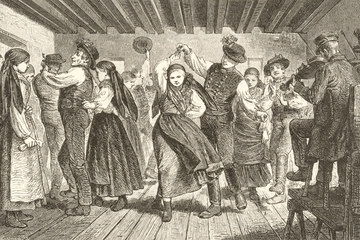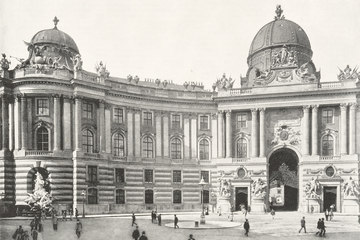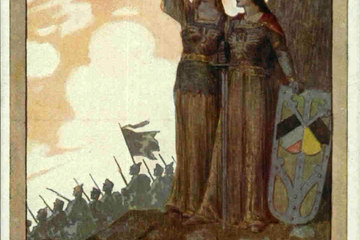The ‘German-Austrians’
Of all the nationalities of Austria-Hungary, those with German as their mother tongue were the largest group and also the strongest in social and economic terms. These ‘German-Austrians’ considered themselves to be the ‘cement’ that held Austria-Hungary together and the guarantors of the whole idea behind the Habsburg Monarchy. However, they increasingly found their privileged position being challenged by the other language groups.
Following the foundation of the unified German Reich in 1871 many German-Austrians who considered that the Habsburg Monarchy was holding back their national development experienced a conflict of loyalties between Berlin and Vienna. An increasing number began to sympathize with the radical political solutions being proposed by the German nationalists.
Many nationalistically minded German-Austrians saw the First World War as the ‘last chance’ to ensure the primacy of the German language and of German culture generally. Their intention was that the war should lead to the creation of a German-dominated Central Europe in which a restructured Habsburg Monarchy would be closely linked to the German Reich.









